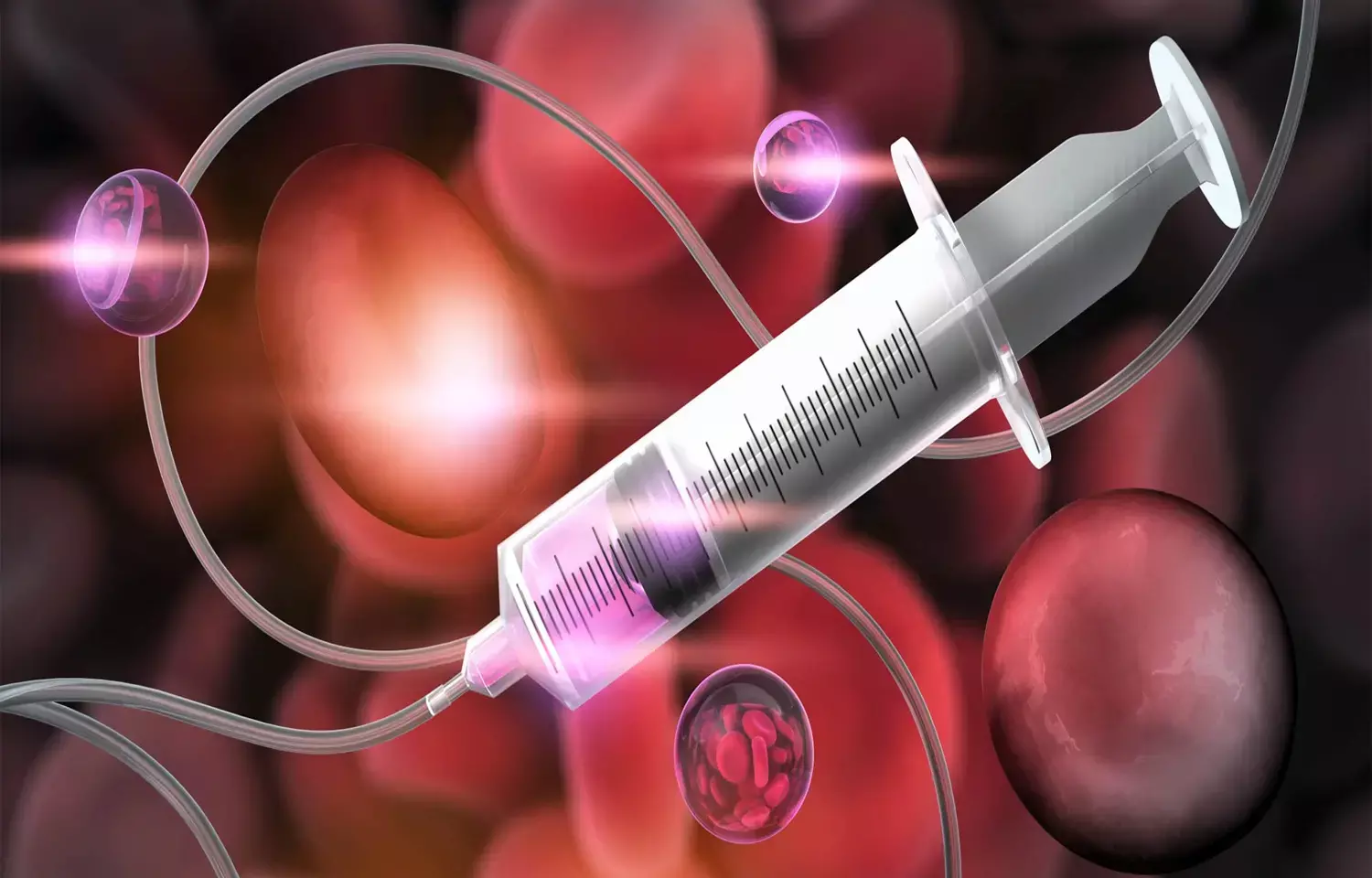- Home
- Medical news & Guidelines
- Anesthesiology
- Cardiology and CTVS
- Critical Care
- Dentistry
- Dermatology
- Diabetes and Endocrinology
- ENT
- Gastroenterology
- Medicine
- Nephrology
- Neurology
- Obstretics-Gynaecology
- Oncology
- Ophthalmology
- Orthopaedics
- Pediatrics-Neonatology
- Psychiatry
- Pulmonology
- Radiology
- Surgery
- Urology
- Laboratory Medicine
- Diet
- Nursing
- Paramedical
- Physiotherapy
- Health news
- Fact Check
- Bone Health Fact Check
- Brain Health Fact Check
- Cancer Related Fact Check
- Child Care Fact Check
- Dental and oral health fact check
- Diabetes and metabolic health fact check
- Diet and Nutrition Fact Check
- Eye and ENT Care Fact Check
- Fitness fact check
- Gut health fact check
- Heart health fact check
- Kidney health fact check
- Medical education fact check
- Men's health fact check
- Respiratory fact check
- Skin and hair care fact check
- Vaccine and Immunization fact check
- Women's health fact check
- AYUSH
- State News
- Andaman and Nicobar Islands
- Andhra Pradesh
- Arunachal Pradesh
- Assam
- Bihar
- Chandigarh
- Chattisgarh
- Dadra and Nagar Haveli
- Daman and Diu
- Delhi
- Goa
- Gujarat
- Haryana
- Himachal Pradesh
- Jammu & Kashmir
- Jharkhand
- Karnataka
- Kerala
- Ladakh
- Lakshadweep
- Madhya Pradesh
- Maharashtra
- Manipur
- Meghalaya
- Mizoram
- Nagaland
- Odisha
- Puducherry
- Punjab
- Rajasthan
- Sikkim
- Tamil Nadu
- Telangana
- Tripura
- Uttar Pradesh
- Uttrakhand
- West Bengal
- Medical Education
- Industry
IV ferric carboxymaltose reduces hospitalization in heart failure patients: AFFIRM-AHF trial

Delhi: Treatment with IV ferric carboxymaltose in heart failure patients diagnosed with iron deficiency is safe and reduces the risk of heart failure hospitalizations, show findings from the AFFIRM-AHF trial.
The findings from the study were presented at the virtual 2020 scientific sessions of the American Heart Association and also published in the journal Lancet.
Intravenous ferric carboxymaltose has been shown to improve quality of life and symptoms in patients with chronic heart failure and iron deficiency. Piotr Ponikowski, Wrocław Medical University, Wroclaw, Poland, and colleagues aimed to evaluate the effect of ferric carboxymaltose versus placebo on outcomes in patients stabilised after an episode of acute heart failure.
AFFIRM-AHF is a multicentre, double-blind, randomised trial performed across 121 sites in Singapore, South America, and Europe. It included 1132 patients of the 1525 patients screened. It included patients who were aged 18 years or above, hospitalized for heart failure with concomitant iron deficiency and had a left ventricular ejection fraction of less than 50%.
They were randomly assigned in the ratio 1:1 to receive IV intravenous ferric carboxymaltose (n=558) or placebo (n=550) for up to 24 weeks dosed according to the extent of iron deficiency. The primary outcome was a composite of total hospitalisations for heart failure and cardiovascular death up to 52 weeks after randomisation, analysed in all patients who received at least one dose of study treatment and had at least one post-randomisation data point.
Safety was assessed in all patients for whom study treatment was started. A pre-COVID-19 sensitivity analysis on the primary and secondary outcomes was prespecified.
Key findings of the study include:
- 293 primary events occurred in the ferric carboxymaltose group and 372 occurred in the placebo group (rate ratio [RR] 0·79).
- 370 total cardiovascular hospitalisations and cardiovascular deaths occurred in the ferric carboxymaltose group and 451 occurred in the placebo group (RR 0·80).
- There was no difference in cardiovascular death between the two groups (14% patients in the ferric carboxymaltose group vs 14% in the placebo group; hazard ratio [HR] 0·96).
- 217 total heart failure hospitalisations occurred in the ferric carboxymaltose group and 294 occurred in the placebo group (RR 0·7).
- The composite of first heart failure hospitalisation or cardiovascular death occurred in 32% patients in the ferric carboxymaltose group and 38% in the placebo group (HR 0·80).
- Fewer days were lost due to heart failure hospitalisations and cardiovascular death for patients assigned to ferric carboxymaltose compared with placebo (369 days per 100 patient-years vs 548 days per 100 patient-years; RR 0·67).
- Serious adverse events occurred in 45% patients in the ferric carboxymaltose group and 51% patients in the placebo group.
"In patients with iron deficiency, a left ventricular ejection fraction of less than 50%, and who were stabilised after an episode of acute heart failure, treatment with ferric carboxymaltose was safe and reduced the risk of heart failure hospitalisations, with no apparent effect on the risk of cardiovascular death," wrote the authors.
"Ferric carboxymaltose for iron deficiency at discharge after acute heart failure: a multicentre, double-blind, randomised, controlled trial," is published in the journal Lancet.
DOI: https://www.thelancet.com/journals/lancet/article/PIIS0140-6736(20)32339-4/fulltext
Dr Kamal Kant Kohli-MBBS, DTCD- a chest specialist with more than 30 years of practice and a flair for writing clinical articles, Dr Kamal Kant Kohli joined Medical Dialogues as a Chief Editor of Medical News. Besides writing articles, as an editor, he proofreads and verifies all the medical content published on Medical Dialogues including those coming from journals, studies,medical conferences,guidelines etc. Email: drkohli@medicaldialogues.in. Contact no. 011-43720751


